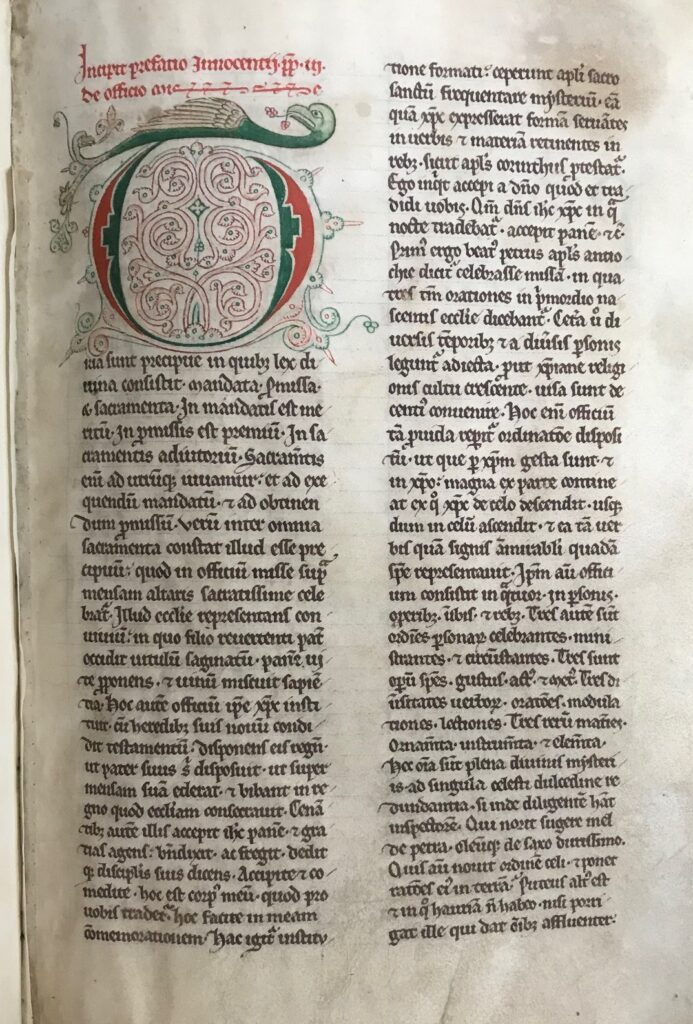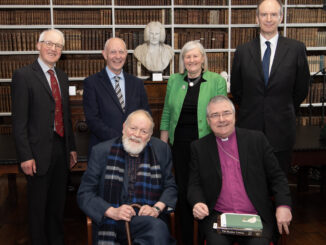Mark McKillion, Ulster University MA History graduate and volunteer for the Library in 2022, carried out research on the manuscript Opuscula Innocentii Papae III = The Works of Innocent III (1300-1400) (object ID P001942359).
You can adopt this manuscript for £1,000, and support the work of the Library, caring for our wonderful collections, and inspiring present and future generations!
As the head of the Catholic Church and ruler of the Papal States from 1198 until his death in 1216, Pope Innocent III was able to assert his authority over various leaders of different secular states across Europe. One such leader being Frederick II, who had laid claim to the throne of the Holy Roman Empire following Innocent’s deposition of Otto IV in the aftermath of the Battle of Bouvines.
In his article Innocent III, Defender of the Clergy, Charles Edward Smith notes Innocent’s eagerness to prevent any violent attacks against members of the clergy. Particularly he had inherited the responsibility of his predecessor, Celestine III, with negotiating the liberation of the Archbishop of Salerno, who had been imprisoned in Germany since the death of Emperor Henry VI in 1197. Smith also notes Innocent’s response to the assassination of the Bishop of Würzburg during a period of conflict between Philip of Swabia and Otto of Brunswick, where he declared that “no sadness was comparable with that of the Church whose sons were killed by the workers of iniquity.[1]
Therefore, Innocent was determined to punish any individuals that were guilty of committing acts of violence towards the clergy through various measures such as mandating the culprit to travel to Rome in order to request an absolution in person. In the case of more flagrant offenses, he would utilise his own papal authority specifically for the case, “lest the nerve of ecclesiastical discipline, which is excited by violence, be paralyzed by lack of use,”[2] or appointing Biagio, the archbishop of Torres, to govern the island of Sardinia in his stead, thereby emphasising his own authority throughout the rest of central Italy.[3]
Therefore, the complexity of Innocent’s approach to managing the papal states is highlighted by Francis S. Betten, who notes that although his excommunication of Otto IV had cost him a notable amount of support from the German people, the reputation of his successor Frederick II, who left behind a complex legacy of his own, arguably provides a certain degree of justification of Innocent’s own cautiousness.[4]




